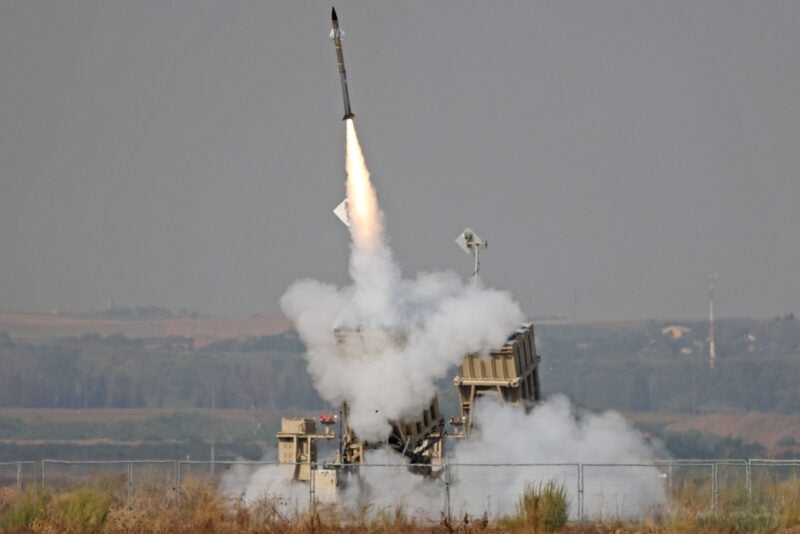
Ukrainian President Volodymyr Zelensky once more asked for the provision of the Israeli Iron Dome air defence system during a press conference on 16 November, with Benjamin Netanyahu, Israel’s recently elected Prime Minister-designate, stating that he would consider the proposition.
As early as 15 February, in advance of the Russian invasion of Ukraine, Israeli daily newspaper Yedioth Ahronoth was reporting that Ukraine had unsuccessfully sought the Iron Dome system which has been responsible for intercepting over 90% of the 4,000 rockets and missiles fired at Israel during recent operations in the region.

Discover B2B Marketing That Performs
Combine business intelligence and editorial excellence to reach engaged professionals across 36 leading media platforms.
But by mid-July, Ukraine’s Defence Minister Oleksii Reznikov described a turn in Ukraine’s view of the defence system: “Iron Dome was built [for protection] against slow, low-altitude, low-impact missiles that were basically made in garages. Iron Dome does not protect against cruise and ballistic missiles,” said Reznikov, speaking at a Forbes summit.
After the success of the Ukrainian counter-offensive in October Russia deployed waves of Iranian produced loitering munitions to target civil and infrastructure targets deep within Ukraine. As part of efforts to increase air defence, the Ukrainian government sent an official request to Israel for Iron Dome batteries. The request, detailed in letter obtained by Axios, argued that successfully deterring the drones would deter further improvements in Iranian systems, but was met by expressions of unwillingness from both sides of Israel’s political divide.
On 9 November, Israel Defense Minister Benny Gantz told journalists that the production capabilities of Israel were insufficient to furnish Ukraine with air defence systems. “It is clear that even if it was decided that we change our policy, it is impossible to empty our supply of air defence systems,” said Gantz.
However, during remarks at a Stimson Centre panel discussion on Ukraine and the future of air warfare delivered on 14 November, Tom Karako, senior fellow with the International Security Program and Director of the Missile Defense Project at the Center for Strategic and International Studies, appeared to contradict Gantz’s position regarding the limits to support for Ukraine stemming from insufficient production capabilities: “There is one system that the United States could share but have not done so, and that’s our Iron Dome. We don’t need to take anything away from Israel for its own defence. The United States has two batteries of Iron Domes.

US Tariffs are shifting - will you react or anticipate?
Don’t let policy changes catch you off guard. Stay proactive with real-time data and expert analysis.
By GlobalData“And if, in a foreign policy standpoint, Israel were to green-light the transfer of those from the United States to Ukraine, that would be a helpful addition,” continued Karako, referring to the agreement between Israel and the US – nations that jointly developed the Iron Dome – only to sell the technology to third parties through mutual consent.
Following this month’s elections in Israel and the change in governing party, Zelensky was asked if there had been a shift in relations with Israel: “The shift is that we got back in contact with Netanyahu… We passed on to them all details regarding air defence systems. This is the top priority. He has assured me that he will sort this issue out as soon as possible or he will think where he can help, and then he will get back with a response.”





